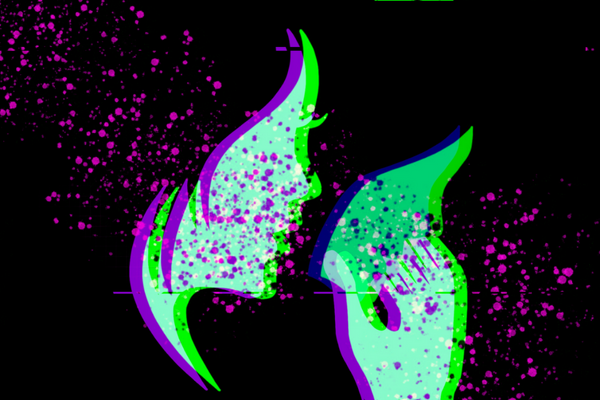Exploring Imposter Syndrome
Part II: Discussing Imposterism
Conversations with Lee Gilboa, Claire Marie Lim, Oliver Polk, and Susan Rogers.
In our previous blog post, we discussed what the Imposter Phenomenon is and ways to approach it. The traditional way to alleviate symptoms of imposter “syndrome” is by using a psychological approach, but current studies indicate that the problem doesn’t begin with the individual: we don’t need to “fix” those who suffer the effects of Imposterism; instead, we need to correct the discriminatory and biased environments that lead to this phenomenon.
With that perspective in mind, we interviewed a series of jaw-dropping and acclaimed producers, engineers, and creators to get their take on the current music industry and how they deal with feelings related to Imposterism.
the Interviews
Especially as it relates to technological fields, like music production and audio engineering, a lot of us have faced scenarios in which our talent and abilities are second guessed. In an interview with Lee Gilboa, Berklee College of Music, Electronic Production & Design faculty member, she discussed some of the challenges she faced early on in her career:
Lee Gilboa, Berklee College of Music, EPD Faculty Member
“I worked for years as a front of house and multi-track recording engineer. There were a few instances when an artist found out there was a woman [Gilboa] handling the console, and they wanted to replace me with a new engineer. These experiences, they’re isolated, but they start fitting into every other experience.”
Gilboa went on to explain that instances like the one she recounted can make a person become defensive in situations where they don’t need to be defensive:
“You come with a certain amount of imposter syndrome to the next project. It snowballs if you don’t have a productive way of handling it.”
Aside from specific circumstances involving stereotypes and prejudice, gender and ethnic representation also plays a huge role in the imposter phenomenon. Berklee faculty member, Claire Marie Lim, from the Electronic Production & Design department, recounted her own experience with lack of representation:
Claire Marie Lim, Berklee College of Music, EPD Faculty & BBG Teaching Artist
“One instance where I felt it [imposter syndrome] super intensely was during a gig in Vegas. I was subbing for someone on their show. On the tech team, I was the only woman there. And I’m certainly capable, but there was always this sense of ‘am I doing enough?’ The job was predominantly playback engineering, which is standard, but usually male-fronted in the industry.”
Recent findings indicate that a lack of representation can make individuals second guess their suitability for a specific job, and thus “increase their susceptibility to feel like imposters when in those institutions.” Expectations that a community has about a given work place can also influence or even heighten feelings of imposter syndrome.
Oliver Polk, an incredible producer and creator, recounts their journey as a disabled creative:
“Because I can’t function as society’s ‘ideal’ person, there’s a lot of pressure, nervous energy, instead of excitement.”
Polk added that engaging with their own art with a sense of childhood wonder is one of the tools they use to relieve feelings of inadequacy:
Oliver Polk, Musician & Creator
“Life is joy when you’re a kid, because you’re constantly learning. Trying to reconnect with that sense of wonder as an adult also really helps me escape that feeling of ‘I’m not good enough’ or ‘I’m fraudulent.”
Nonetheless, while the current music tech industry could certainly continue improving in its efforts to be more diverse and inclusive, it’s an undeniable fact that things are a lot better now than they were in the past. Audio engineering and record producing legend, Susan Rogers, known for being Prince’s staff engineer on albums like Purple Rain and Around the World in a Day, confirmed that the environment has vastly improved over the years and that the social climate has been changing rapidly.
“We OGs, original goddesses, had to address these problems [discrimination and harassment] when there were even fewer women in the industry than there are right now.”
Susan Rogers, author of This Is What It Sounds Like
Rogers explained that it was easy to target women for intimidation and harassment because they were perceived as weaker.
“When you’re young, it’s hard to counteract, but the main thing we need to counteract with is men who do not behave like this. They need to speak up. Silence equates to agreement, and if they stay silent, then they’re part of the problem.”
Next STeps
Rome wasn’t built in a day, and while awareness, education, and representation are all great ways for the current music industry to continue ensuring an inclusive and equitable workplace for everyone, there must be steps that we, as individuals, can take to alleviate the feelings that come with Imposterism.
Claire Marie Lim emphasizes:
“It’s okay to make mistakes. It’s more important that you recover from them. Once you accept the idea that making mistakes is part of the process, everything else becomes a learning experience.”
And producer Oliver Polk highlights the importance of building a supportive community around yourself:
“Having a community of people in which everyone believes in each other enables people to be creative, because we all have something to say. We are the medium that is expressing emotions and we just choose different ways to express that.”
Only time will tell whether Imposterism is eventually eradicated, but in the meantime, it’s important for everyone to contribute to this cause. As Lee Gilboa aptly stated in her interview , those who hold positions of authority have the responsibility to inform themselves about gender misconceptions, gender stereotypes, imposter syndrome, disabilities, and more:
“It’s a teacher’s responsibility to learn about these things and make sure that it [discrimination] doesn’t happen.”
Moreover, this applies to anyone in a leadership role. If we focus on representation, awareness, community, and education, we’ll see imposter syndrome diminish over time.
Sources:
Clance, Pauline Rose, and Suzanne Ament Imes. “The Impostor Phenomenon in High Achieving Women: Dynamics and Therapeutic Intervention.” Psychotherapy: Theory, Research and Practice, vol. 15, no. 3, 1978.
Feenstra, Sanne, et al. “Contextualizing the Impostor ‘Syndrome.’” Frontiers in Psychology, vol. 11, 2020, https://doi.org/10.3389/fpsyg.2020.575024.
“Imposter Syndrome.” Psychology Today, Sussex Publishers, https://www.psychologytoday.com/us/basics/imposter-syndrome.
Ingham, Tim. “Nearly 80% of Artists on Spotify Have Fewer than 50 Monthly Listeners.” Music Business Worldwide, 25 Apr. 2022, https://www.musicbusinessworldwide.com/over-75-of-artists-on-spotify-have-fewer-than-50-monthly-listeners/.





